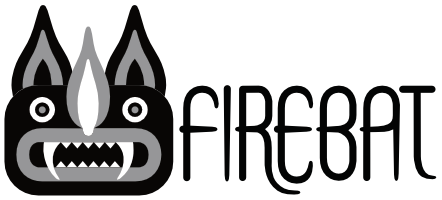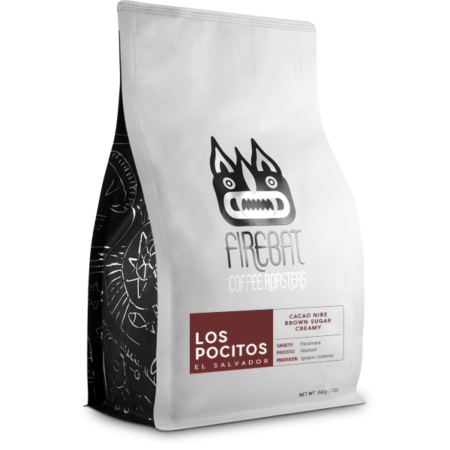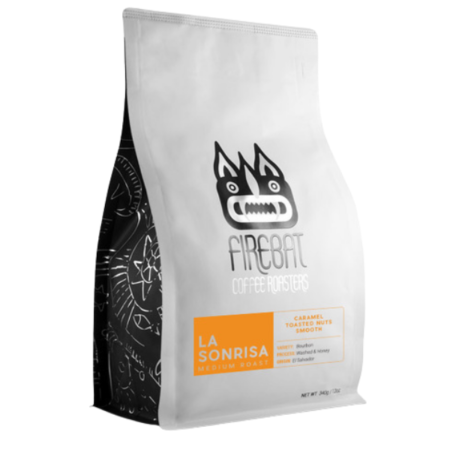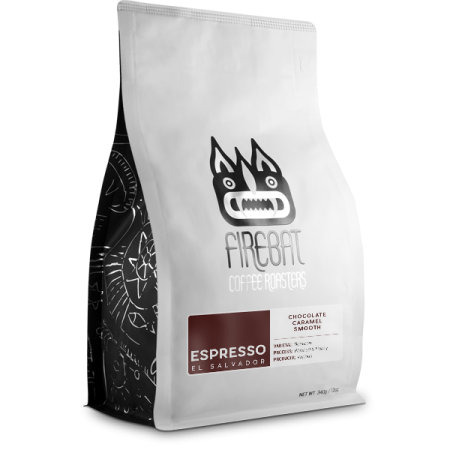When we purchase coffee, we usually see labels like “Rainforest Alliance”, “Fair-trade” or “Certified Organic.” Finding high-quality, ethical coffee isn’t limited to these certifications, however enter shade-grown coffee. While not an official certification, shade-grown coffee combines the benefits of all of these labels combined.
Because shade-grown is not a legally-binding term, anyone can slap this claim on their coffee bag and call it a day. Unfortunately, some coffee roasters use this term in bad faith. But all it takes to verify this claim is to do a bit of research on the coffee roaster in question. Legitimate shade-grown coffee is eco friendly, ethical, and best of all, delicious.
Let’s explore this farming method and break down why it’s so important in the specialty coffee world.
What is shade-grown coffee?
Shade-grown coffee is coffee grown under a canopy of tall trees amongst other shrubs, birds, insects, and wildlife. This traditional coffee farming method has become rarer with the prevalence of sun grown coffee. Coffee trees prefer to grow in the shade.
Growing under a canopy of trees means other things for coffee. Trees and shrubs invite birds, insects, and other wildlife into the mix. Normally, we think of insects and birds as unwanted pests. But newer research shows that crops do better in the presence of other flora and fauna.
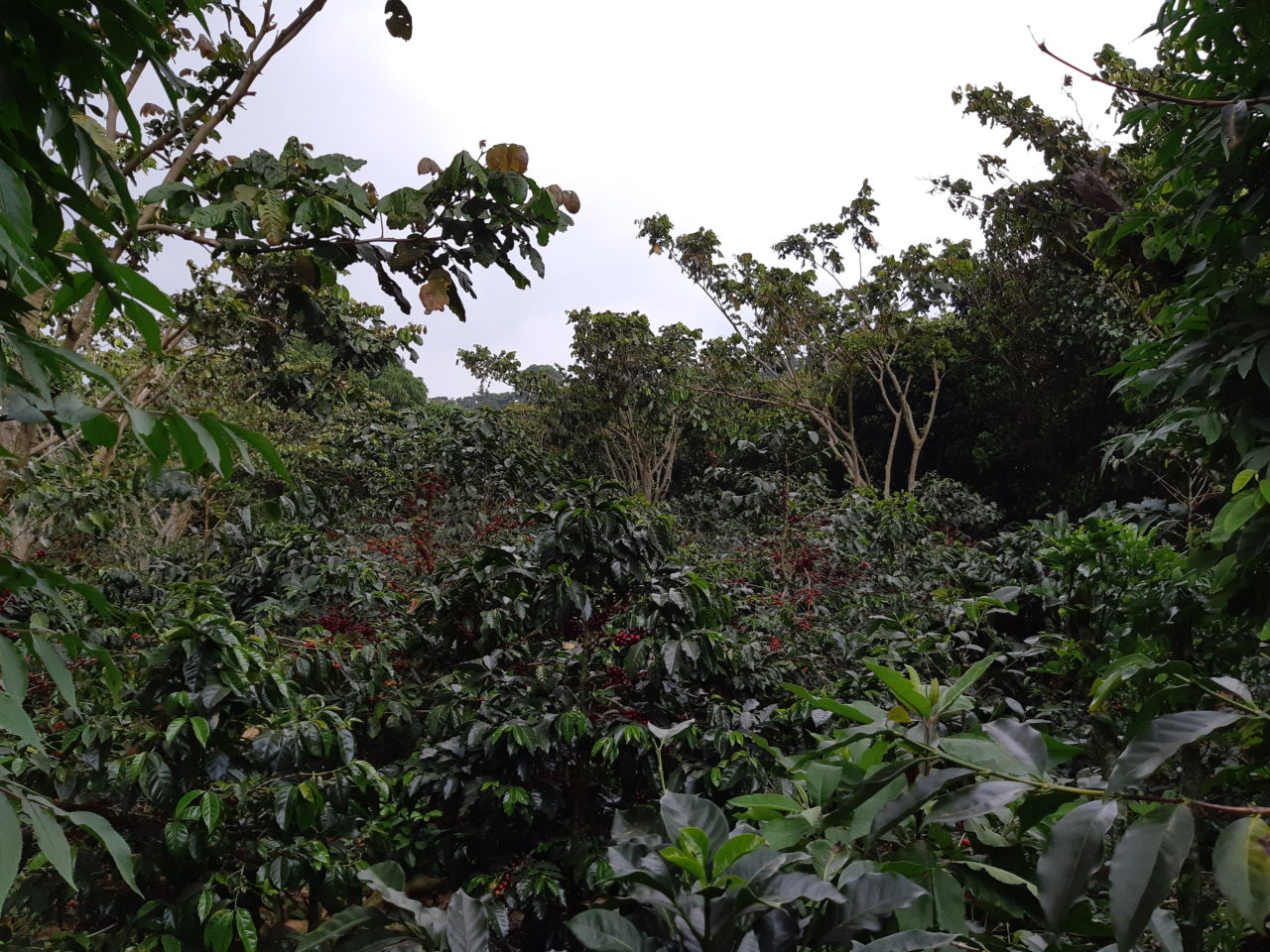
In fact, studies show that birds and bees actually increase crop yield by about 24%. Birds act as natural pest control, eating insects that ruin coffee plants, and bees pollinate coffee plants. (Coffee trees are self-pollinating, but bees help the process go much faster.)
You can think of shade grown-coffee as “wild” coffee—coffee grown in an untampered forest. When the birds, insects, trees and shrubs do well, the coffee does well, too.
Before coffee rose in popularity and became commodified, this was the way coffee was grown. Most of the coffee on the market today is sun-grown coffee.
What is sun-grown coffee?
Sun-grown coffee grows directly in the sun with no shade, usually on a large plot of land that has been clear-cut. Because it soaks up the sun, the coffee trees grow very quickly, yielding a massive harvest. Sun-grown coffee is the majority of coffee on the market.
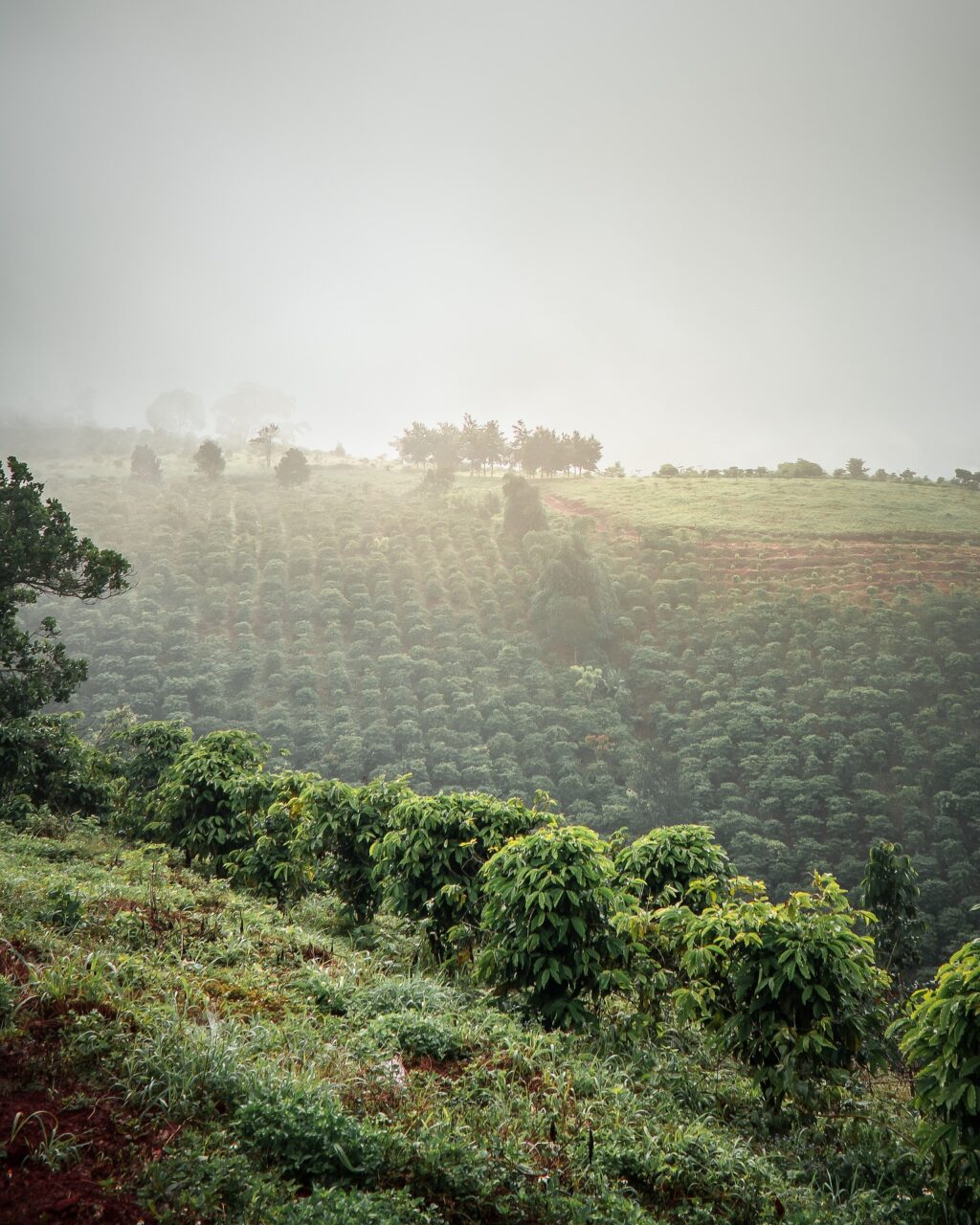
Why is sun-grown coffee unsustainable?
Sun-grown coffee is a mono crop, ie. a massive crop that only grows one thing. Monocropping causes deforestation and leads to soil degradation. Deforestation accelerates climate change, and nutrient-deficient soil jeopardizes the stability of future crops.
Growing massive crops of one thing quickly robs the nutrients of the soil, degrading it for future crops until it’s unusable. Additionally, when other plants, trees, birds, and insects are excluded, the mono crop suffers from malnutrition and pests. This means farmers have to use pesticides and chemical fertilizers for their crops. The price of both are on the rise, and even these can’t guarantee a good harvest every year. This puts the farmer at risk of financial catastrophe.
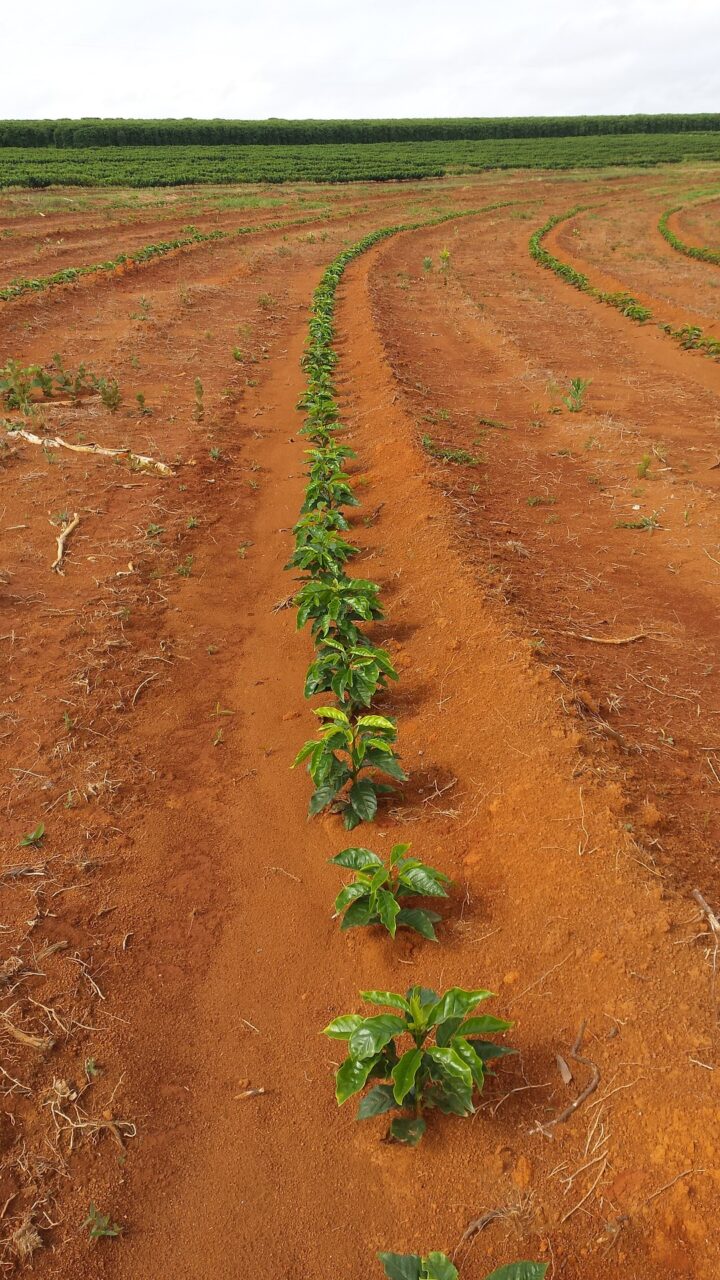
While sun-grown coffee creates massive yields, the coffee is of low quality. Low cupping scores means the farmer is limited to the generic coffee market and likely won’t get a good price for it. A lot of coffee farmers are stuck in this cycle, by no fault of their own. Developing a regenerative shade-grown coffee system takes time and knowledge to develop, and not all coffee farmers have access to the right tools and mentorship.
Studies show that biodiverse crops (ie. crops with a variety of plants) are more likely to thrive. Biodiverse crops are more resilient to pests and disease, and they improve soil health.
What makes shade-grown coffee eco friendly?
It means that we don’t have to cut down trees and destroy eco systems to grow delicious coffee. Trees absorb CO2 in the air and are crucial in our fight against climate change; deforestation only accelerates climate change. We need to leave trees alone so they can do their job as carbon sinks.
Additionally, shade-grown coffee protects waterways. When rain hits crops that are sprayed with pesticide and chemical fertilizer, some of those chemicals end up in lakes and rivers. This contaminates drinking water and harms creatures found in lakes and rivers.
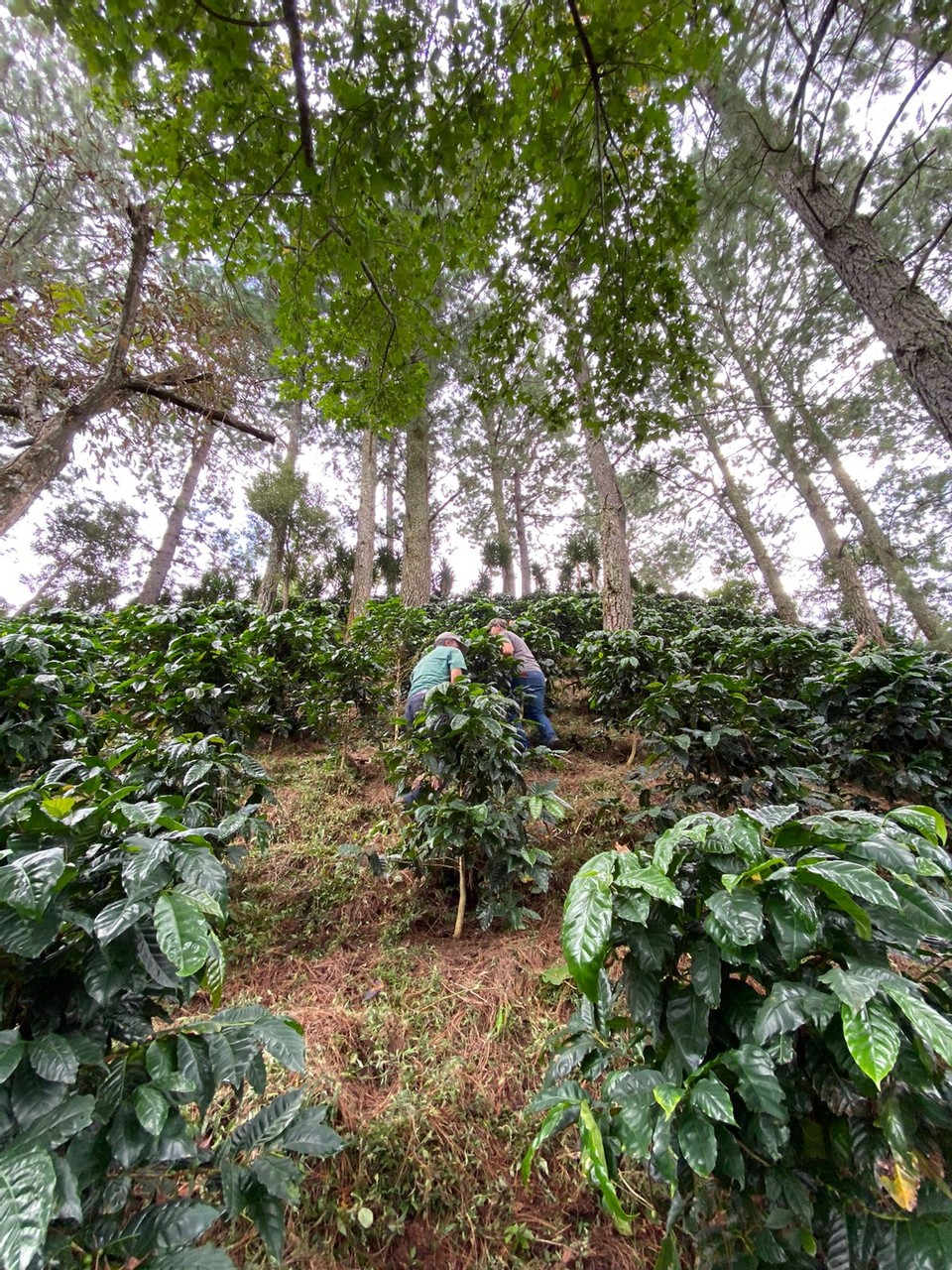
Shade-grown coffee doesn’t create huge yields, but it is a sustainable, reliable crop year after year. This is the kind of crop that families can rely on for a decent living.
What makes shade-grown coffee ethical?
Shade-grown coffee supports entire communities, providing reliable work while protecting the environment. Coffee farms need workers during harvest time for picking, sorting, processing, drying, and resting coffee before it is exported. This employs people who live in the rural area.
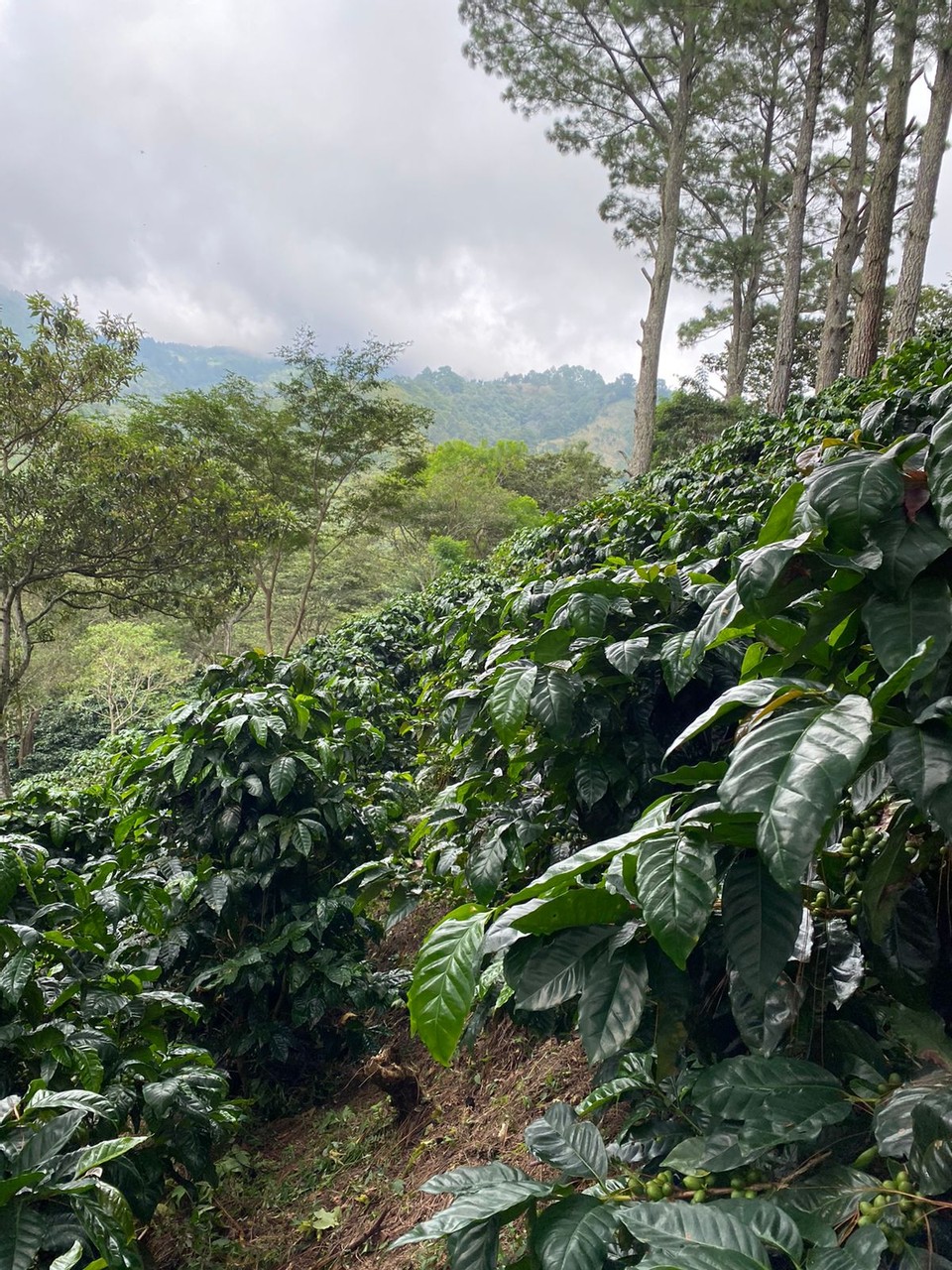
Many people in Central and South America leave or migrate north illegally for a better life and better job opportunities. But providing a more stable crop means better jobs for people in coffee growing communities. This gives people a good reason to stay.
Coffee trees only have one harvest per year, and if that one harvest goes awry, people who relied on can fall into a complicated financial situation. Having other trees near the coffee plants, such as fruit trees or taking upon bee keeping, means extra profits for coffee farmers during the off-season.
What are the benefits of drinking shade-grown coffee?
The biggest benefit of shade-grown coffee is that it’s delicious. Coffee trees prefer to grow in the shade, growing slowly. This slow, steady growth is partly responsible for the development of complex flavour notes. Additionally, coffee trees that get the right nutrients make better tasting coffee. The forest provides its own nutrients to the soil and doesn’t need chemical fertilizer. Dead leaves and decomposing plants create rich humus.
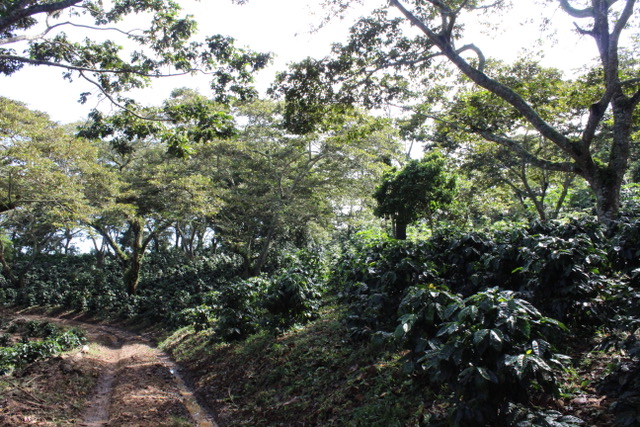
Shade-grown coffee tends to go hand-in-hand with elevation coffee. Coffee grown high up in the mountains under a canopy of trees makes for better flavour and complex tasting notes. When you see “1600 metres above sea level” on a coffee bag, that refers to the elevation of the coffee. Elevation coffee is also known as “hard-bean” coffee.
How do I know if I’m getting shade-grown coffee?
Because “shade-grown” is not an official certification, do some research on your local roaster to gauge legitimacy. Check out their website, read their About page, and familiarize yourself with their sourcing standards. You should see that they have a direct trade relationship with farmers and co-operatives. You may even see the faces and the names of the farmers.
Firebat Coffee is sourced directly from producers in El Salvador. Our Direct Trade relationship helps us bypass the generic coffee market and ensures producers get fair price for their product. We have teamed up with producers that follow shade-grown farming techniques with an emphasis on biodiversity and sustainable farming practises.

El Salvador has lost about 85 percent of its native forests since the 1960s, outpacing the global rate of deforestation. Today, forests in El Salvador account for just over 15% of the country’s total land area. This is in part due to unsustainable farming, short-term economic interests and lack of regulation. We at Firebat are committed to sourcing exclusively shade grown coffee in El Salvador, and doing our part in preserving the remaining forests of the country.
Apart from legitimate shade-grown coffee, the next best thing is Bird Friendly coffee. This certification created by the Smithsonian Migratory Bird Center has strict criteria with regards to canopy height and biodiversity. It’s automatically organic, and it’s one of the best coffee certifications that exists today.
How can struggling farmers implement sustainable farming?
While shade-grown, sustainably farmed coffee creates economic sovereignty, creating this system doesn’t happen overnight. If struggling farmers are to create this system, they need support. It needs to come in the form of loans, agricultural mentoring, equipment such as wet mills, and more.
Organizations such as Food 4 Farmers are dedicated to helping coffee growing communities thrive. They help farmers learn sustainable farming techniques, establish secondary sources of income, and become economically independent.
As a consumer, you can create a bigger demand for ethical, sustainable coffee by supporting the right kinds of coffee companies. When looking for roasted coffee, check the roaster’s website to understand how they source their coffee. If you can’t find this information, you may want to consider continuing on with your search!
Coffee with a conscience
The best thing you can do as a coffee drinker is to support the coffee companies that don’t support unsustainable practises. These unsustainable practises hurt our forests, our eco systems, and our farmers in coffee growing countries.
Shade-grown coffee benefits everyone, whether it’s farmers, birds and insects, trees, and coffee drinkers. It may not yield a huge harvest, but it’s enough–enough to support a community, and enough to excite our taste buds.
Looking for shade-grown coffee? Check out our coffee collection. We offer exclusively shade-grown coffee sourced via Direct Trade from El Salvador.
-
Los PocitosFrom$22.00
-
La SonrisaFrom$19.95
-
Firebat EspressoFrom$19.95
